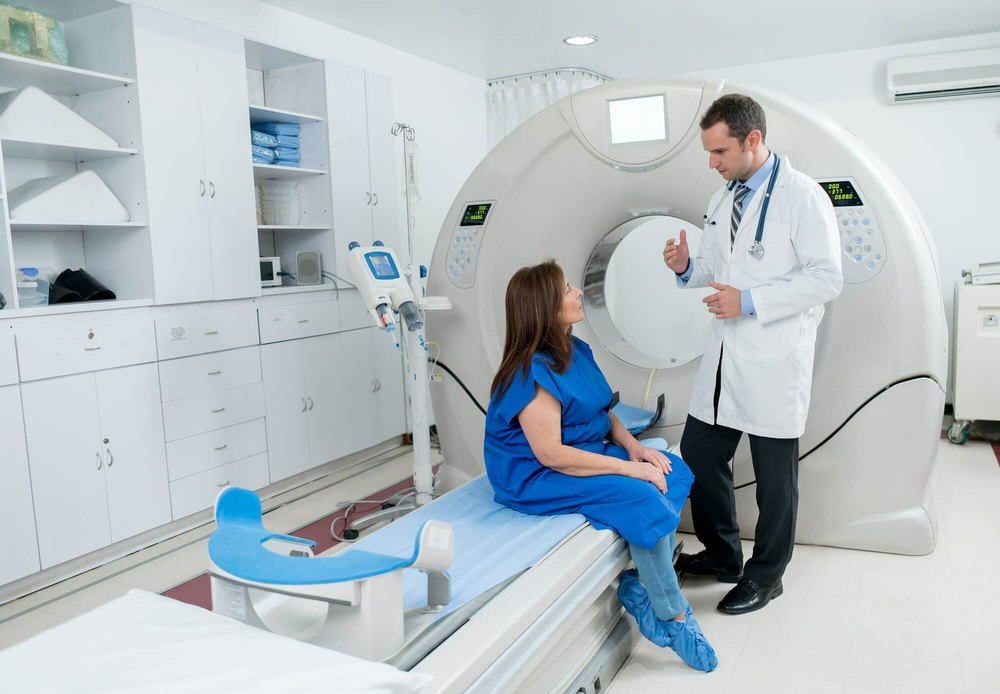Are you looking for a reliable and high-quality diagnostic imaging services provider? Look no further! Visit Rapid lab Punjab’s best diagnostic service provider. With advancements in technology, the healthcare industry has seen an explosion of innovation in medical equipment and techniques. One such advancement is diagnostic imaging, which uses non-invasive methods to produce detailed images of internal body structures for diagnosis. Whether it’s an X-ray, MRI or CT scan, finding the right imaging service provider can be challenging. In this blog post, we will explore what makes a great diagnostic imaging services provider and provide tips on how to choose one that fits your needs. So let’s dive in!
What is a Diagnostic Imaging Services Provider?
A diagnostic imaging services provider is a company that provides diagnostic imaging services to patients. Diagnostic imaging includes procedures such as X-rays, MRIs, and CT scans. These services are used to diagnose medical conditions and to plan treatment.
A diagnostic imaging services provider typically has a staff of radiologists, who are doctors who specialize in interpretation of images. The provider also has technologists, who perform the actual imaging procedures. In some cases, the provider may also have nurses on staff to assist with patient care.if you are looking for cooperative staff visit rapid lab Punjab’s best diagnostic service provider.
The Diagnostic Imaging Services Provider Association (DISA) is a trade association that represents providers of diagnostic imaging services in the United States. DISA works to advance the interests of its members and to promote high standards of care for patients undergoing diagnostic imaging procedures.
The Different Types of Diagnostic Imaging Services Providers
There are many different types of diagnostic imaging services providers. It is important to choose the right type for your needs based on its strengths and weaknesses.Here is a brief overview of the most common types of diagnostic imaging services providers:
Radiologists: Radiologists are doctors who specialize in interpreting images such as X-rays, MRIs, and CT scans. They can provide both diagnosis and treatment recommendations. Radiologists usually work in hospitals or clinics, but some also work in private practice.
Radiologic technologists: Radiologic technologists are trained to operate imaging equipment and perform image-guided procedures such as biopsies and injections. They typically work in hospitals or clinics under the supervision of a radiologist.
Medical physicists: Medical physicists develop and oversee the use of imaging equipment and techniques. They also collaborate with radiologists to ensure that images are correctly interpreted. Medical physicists usually work in hospitals or research facilities.
Imaging informatics specialists: Imaging informatics specialists use computers to store, manage, and analyze medical images. They work in hospitals, clinics, or research facilities, and often collaborate with radiologists and other medical professionals.
The Benefits of using a Diagnostic Imaging Services Provider
There are many benefits of using a diagnostic imaging services provider. Here are just a few:
Convenience –
You can usually schedule an appointment within a day or two, and the procedure is often over in just a few minutes.
Accuracy-
These machines are very sensitive and can detect even the smallest abnormalities.
Cost-Effectiveness-
In many cases, insurance will cover the cost of the procedure.
Peace of Mind-
Knowing that you’re taking care of your health can be very reassuring.
Availability-
Most diagnostic imaging services providers offer a wide range of services, so you can find the one that’s most suitable for your needs.
How to find the Best Diagnostic Imaging Services Provider for You
If you are in need of diagnostic imaging services, it is important to find a provider that is best suited for your individual needs. Here are a few tips on how to find the best diagnostic imaging services provider for you:
- Ask your primary care physician for a referral. Your PCP is likely to have experience with a variety of diagnostic imaging providers and can give you a good starting point for your search.
- Do some research on each name after you have a few.Check out their website, read online reviews, and contact them directly with any questions you may have.
- Make sure the provider you choose is accredited by the American College of Radiology (ACR). This ensures that they meet rigorous standards for quality and safety.
- Be sure to ask about the provider’s experience with your specific type of diagnosis. You want to be confident that they will be able to provide accurate results.
- Find out what kinds of technology and equipment the provider uses. This can impact both the quality of the images produced and your overall experience during the procedure.
By following these tips, you can be sure that you are choosing the best diagnostic imaging services provider for your needs.
Conclusion
Diagnostic Imaging Services Provider is a critical part of patient care in modern healthcare. Providers are able to provide detailed information about the anatomy and physiological function of organs and systems within the human body, allowing for better diagnosis and treatment decisions. By having access to advanced imaging technologies such as X-ray, MRI, CT scan, ultrasound and nuclear medicine studies, providers can offer accurate diagnoses faster than ever before. In addition to helping physicians find solutions more quickly, diagnostic imaging services help keep costs down while ensuring quality care for patients.
